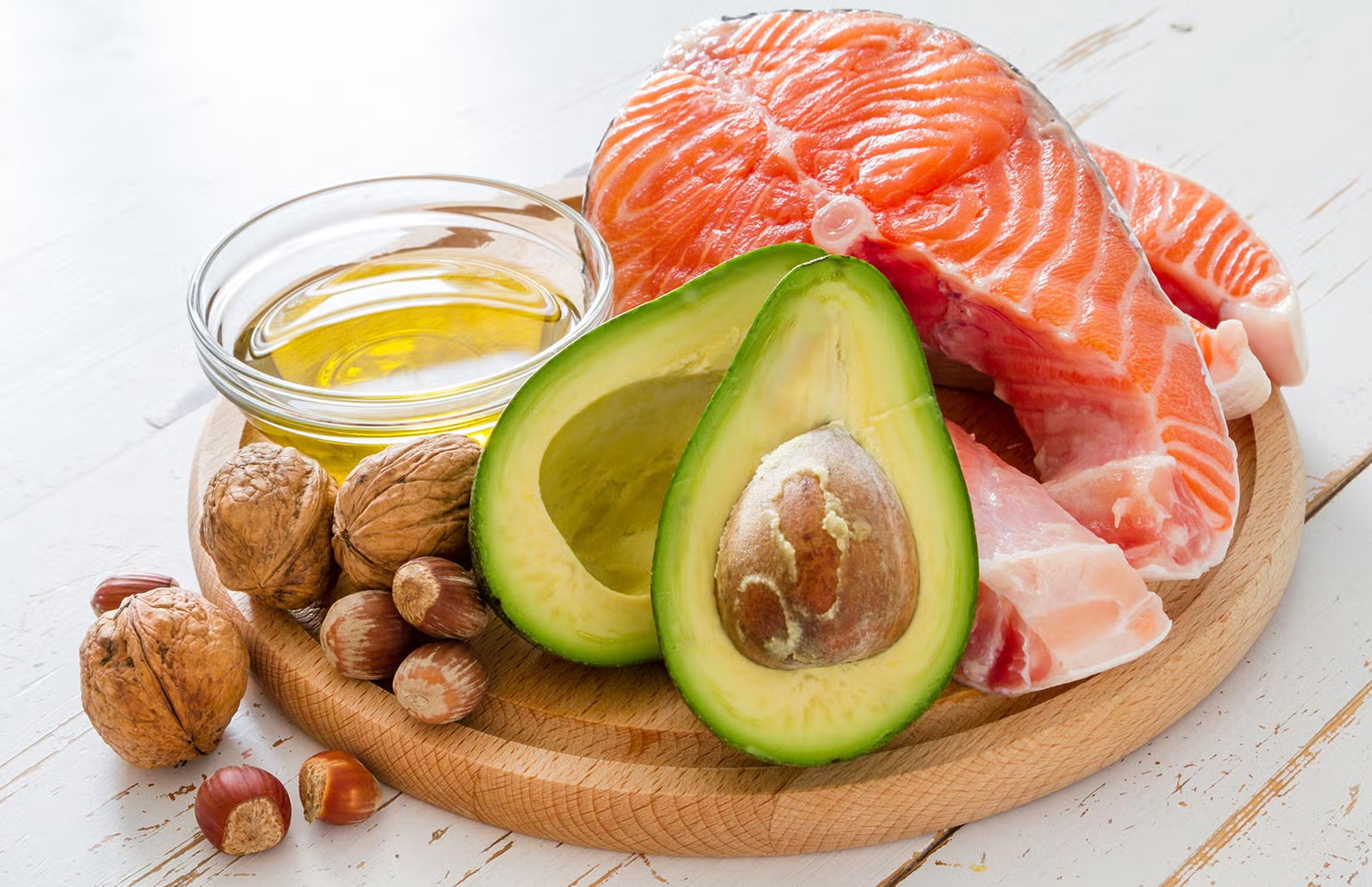
Yes, you’ve been told for years to cut back on fatty foods. But is there more to the story? Could it be that there are some healthy fats that should be included in our diets? Fat has gotten a bad rap over time, but there are different types of fat, and some have an important role in our health.
What Are The Different Types Of Fats?
There are four types of fat: saturated fat, trans fat, polyunsaturated fat and monounsaturated fat. In general, saturated fats and trans fats are solid at room temperature and are known to increase our risk of heart disease by raising “bad” (LDL) cholesterol levels, leading to plaque buildup in our arteries. Monounsaturated and polyunsaturated fat are considered healthy fats. They contain one or more double bonds and have been shown to help reduce the risk of heart disease and stroke. Unsaturated fats are liquid at room temperature and raise our “good” (HDL) cholesterol which in turns helps pull that plaque out of our arteries.
What Are Some Healthy Fat Foods?
Okay, so some fat is good for you. But what are “healthy” fats? Let’s talk about five foods that are great sources of healthy fats.
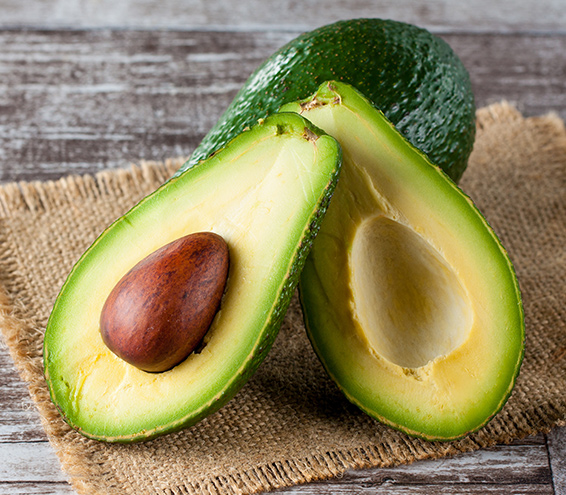
1. Avocados
This fruit is rich in monounsaturated fats, fiber, potassium, vitamin K, vitamin E and B vitamins. The darker green portion also is rich in lutein, an antioxidant that helps with eye and skin health. While high in calories, avocado is a great addition to salads, sandwiches and tacos. Smear a slice of toast with avocado in place of butter in the morning and top it with a slice of tomato and egg for a hearty breakfast. An added benefit is that the fat in the avocado helps your body absorb the vitamins in the other foods you are eating with it!
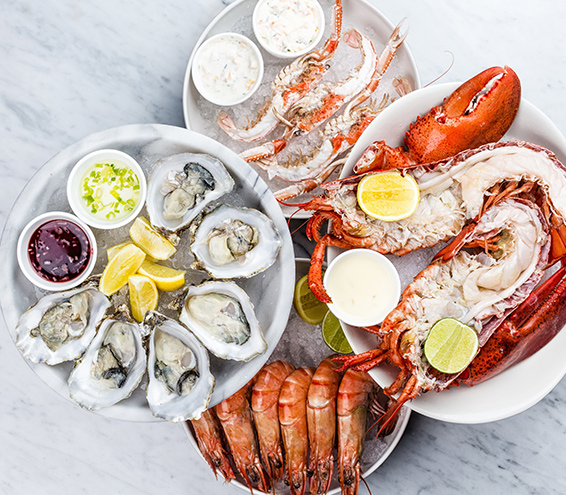
2. Seafood
Fatty seafood is a natural source of omega-3 fatty acids—a polyunsaturated fat. These types of fat have been shown to reduce your risk of heart disease and also assist in cognitive and eye health and development. Research has shown that people who eat more seafood have lower rates of heart disease, high blood pressure and age-related macular degeneration.1 The Dietary Guidelines for Americans recommend 2 to 3 servings of seafood a week to get the heart-healthy omega-3 fatty acids.2 For people who aren’t fans of seafood, fish oil supplements are always available.
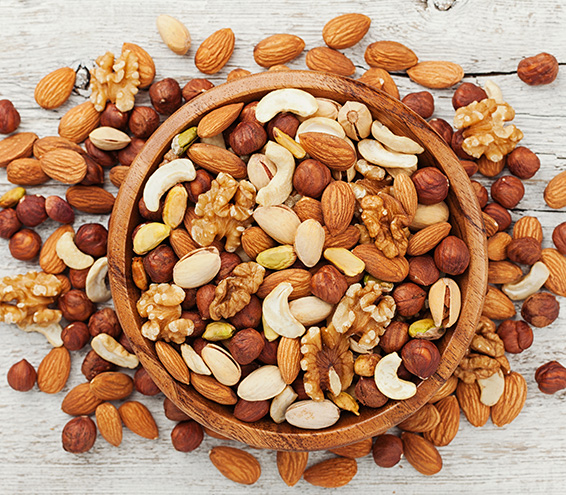
3. Nuts
Nuts are a rich source of unsaturated fats but have a stigma about being a fatty food. A large observational study found that those who ate nuts at least twice a week had a lower risk of cardiovascular and coronary heart disease than those who didn’t.3 Whole nuts, nut butters and nut drinks are excellent sources of unsaturated fats and can be added to a variety of foods.

4. Seeds
Chia, flaxseeds, hemp and sesame seeds are rich in plant-based omega-3 fatty acid ALA. ALA is converted to EPA and DHA omega-3 in our body, which has a key role in supporting heart health. These seeds are also rich in fiber and antioxidants—key nutrients for gut health and for supporting your immune system. Adding these to your diet is a good choice!
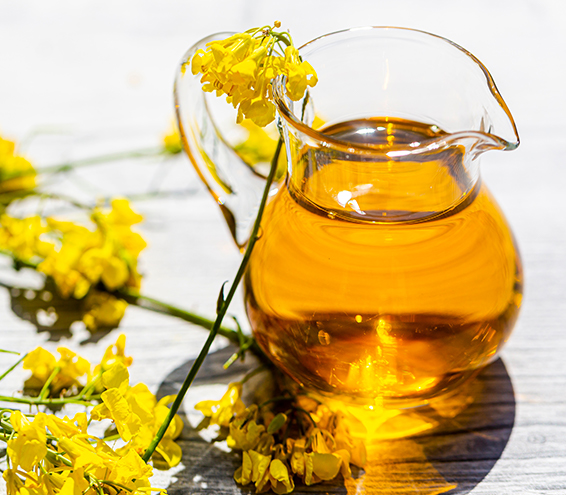
5. Vegetable Oils
There are a variety of vegetable oils that are rich sources of unsaturated fat. Oils like grapeseed, canola, olive, walnut and avocado are rich in unsaturated fats, especially monounsaturated fats. Use these in place of butter when sautéing or in marinades. And go ahead and use a little full-fat dressing on your salad. The fat in the dressing will help you absorb all those good antioxidants from the veggies, meaning you’re getting more bang for your buck!
HIGH FAT FOODS TO AVOID
So, that’s the good fat. Are there types of fats you should limit? Absolutely. Foods that are high in saturated fats like red meat, butter, baked goods and some snacks can raise your risk of heart disease and stroke. The Dietary Guidelines for Americans2 recommends that no more than 10% of your fat calories come from saturated fat. The easiest way to do this is to swap that burger with a piece of fish, change out the butter with a healthy oil and ditch the croutons and get the crunch from chopped nuts.
Bottom line, enjoy a some of these healthy fats with your meals and snacks. Your body will thank you. Check these links out to learn more about how these heart healthy foods and skin health foods too.
Key Takeaways
- Dietary fat has several important roles in maintaining health including nutrient absorption, hormone production and weight management
- Replacing foods high in saturated fat with foods rich in unsaturated fat can help reduce the risk of heart disease
- Healthy fats are foods that are rich in unsaturated fat and should be a regular part of a healthy diet









